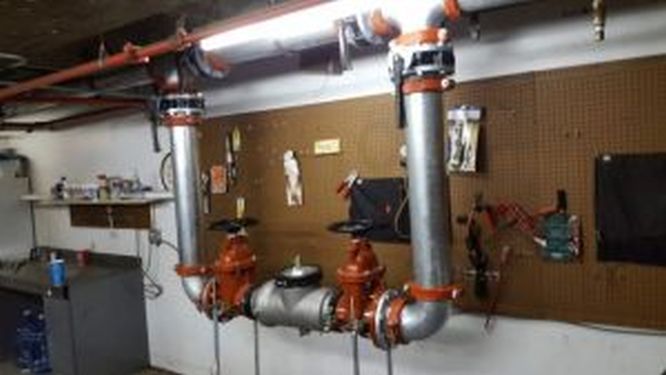Backflow Basics: Why Should You and Your Customers Care About Backflow Prevention Devices?

IN THIS EXTENDED series regarding backflow prevention devices, basic information will be given for those who are new to the backflow industry.
The most common devices, practices, and information will be covered.
However, the uncommon portion, along with a lot of important theoretical information will be left out intentionally.
Why does the water company care that people have a backflow prevention device?
The short answer is so that the water purveyor doesn’t get sued and because the water purveyor is required to be in compliance with plumbing laws. The water purveyor is responsible for providing clean drinking water to the community it serves. If back pressure/back siphonage occurs and someone gets sick because of it, the water company could be sued for not providing clean, safe drinking water.
Some water purveyors started requiring commercial businesses to install swing check or spring check valves to prevent back pressure into the main, but these devices would unknowingly fail, leading to someone getting sick and suing the water company. The answer then became apparent: Make businesses install backflow devices that require annual testing. This alleviated much of the liability for the water purveyors.
Why should you care if customers have one?
The scientific answer is that they provide protection from harmful contaminants back pressuring or back siphoning into the city’s water main and potentially poisoning or degrading the potable water supply. Think of it this way: The water main blows apart in front of your house and you go turn a spigot on. Put your thumb over the spigot and it will feel like someone has a vacuum cleaner hooked to the other end. It will be sucking air instead of dispensing water.
Now imagine if you had a hose connected to that spigot that was sitting inside a bucket of soapy car wash. The sucking action would suck the contents of that bucket into the city’s water main and continue down the line, potentially getting your neighbors sick. Now think about what would happen if that bucket was full of chemicals from a chemical plant, or even worse embalming fluid from a nearby funeral home. Now that your mind is open, the possibilities are endless.
These are a few examples of back siphonage, but we still have yet to talk about back pressure. Pressure always goes from high to low. It is one of the few constants in the world of plumbing and hydronics. In your house you have a boiler filled with nasty, dirty boiler water that circulates, giving you heat. When the potable water main breaks in the street and the pressure drops below the operating boiler pressure, the boiler water will overpower the lower potable water and force its way into the potable water main. Now you have reddish black boiler water mixing into the public water supply. The answer to these dilemmas is the backflow preventer. There are different types of backflow preventers for different applications.
Why should your customer care about having one installed/tested?
If they get a letter from the water company that says they need one by a certain date, and they don’t get one installed, the water company will shut off their water. If they don’t get it tested in time, the water company will shut off their water. If you think they won’t, think again. Due to a paperwork mishap (on their end) the water company actually showed up on one of the due dates to our courthouse to shut its water off.
Never mind that the fire system alarms were going to go off, the building would need to be evacuated, the connecting jail would alarm and have to move prisoners, or that many people would have to be rescheduled and take more days off of work. Here they were with curb key in hand twisting 21 turns on the square stop in the street, trying to shut the water off until I stopped them. They are not playing around — they will shut off your customers’ water.
How does the water purveyor decide who needs what kind of backflow preventer?
The water purveyor decides which type of valve is needed by how risky they think that business is. What kind of products are they dealing with? Is it a sand treatment plant? A chemical manufacturing plant? A funeral home? A car wash company? A doctor’s office? More than likely these places will be required to install a high-risk device. Anything that is not considered high risk usually gets a non-high-risk device. Both of these devices are testable, but one is used in high-risk situations.



